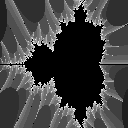Source: Day 6: Wait For It
Full solution for today (spoilers!)
Part 1
Simulate charging up race boats with the behavior that waiting X seconds to start means you move at X units per second. Given time allowed and a target distance, determine how many (integer) numbers of seconds will beat the target distance.
